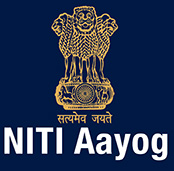-
Overview
-
During the Global Mobility Summit held in September 2018, Prime Minister had outlined a vision for the future of mobility in India based on the 7 C’s: Common, Connected, Convenient, Congestion-free, Charged, Clean and Cutting-edge mobility. Mobility has the potential to drive our economy forward and positively impact the lives of citizens, both in urban and rural areas. Affordable, accessible, inclusive and safe mobility solutions are primary strategic levers for rapid economic development as well as for improving ‘Ease of Living’. Shared, connected and clean mobility solutions are increasingly becoming the key principles of effective mobility solutions across the world. Given its commitment to climate goals, India needs to adopt effective strategies to place itself as a key driver of the mobility revolution in the world.
Hence, there was a need felt to establish a dedicated multi-disciplinary mission that will facilitate cooperative federalism, extensive stakeholder and inter-ministerial consultations as well as implement an end-to-end policy framework for transforming the mobility landscape with particular focus on:
- Manufacturing
- Specification & standards
- Fiscal incentives
- Overall demand creation and projections
- Regulatory framework
- Research & Development
These initiatives will pay significant dividends to a rapidly urbanising India in the decades to come.
Composition
The multi-disciplinary National Mission on Transformative Mobility and Battery Storage, with an Inter-Ministerial Steering Committee, is chaired by CEO, NITI Aayog. The Steering Committee comprises Secretaries from the Ministry of Road Transport and Highways, the Ministry of Power, the Ministry of New and Renewable Energy, the Department of Science and Technology, the Department of Heavy Industry, the Department for Promotion of Industry and Internal Trade, and Director-General, Bureau of Industrial Standards.
-
Core Functions
-
The Mission recommends and drives strategies for transformative mobility and phased manufacturing programs for EVs, EV components and batteries. A Phased Manufacturing Program (PMP) will be launched to localize production across the entire EV value chain. The National Mission on Transformative Mobility and Battery Storage will determine the contours of PMP, and will finalise the details of such a program. The details of the value addition that can be achieved with each phase of localisation will be finalised by the Mission with a clear Make in India strategy for electric vehicle components as well as batteries. The Mission's objective is then to coordinate with key stakeholders in Ministries/ Departments and the states to integrate various initiatives to transform mobility in India.
-
Who’s Who
-
Name
Designation
Sectors
Contact
Sudhendu Jyoti Sinha
Adviser
Infrastructure Connectivity (Transport), E-Mobility and Compliance Burden
Randheer Singh
Senior Specialist
E-Mobility
Abhishek Saxena
Consultant G-II
E-Mobility
Joseph Teja
Public Policy Analyst
Smart Transport & E- Mobility
Diewakarr Anupam Mittal
Young Professional
E-Mobility
-
Partners
-
- World Bank
- Asian Development Bank
- British High Commission in India
- iMOVE Australia
- Society of Indian Automobile Manufacturers
- Society of Manufacturers Of Electric Vehicles
- Federation of Indian Chambers of Commerce & Industry
- Automotive Component Manufacturers Association of India
- Automotive Research Association of India
- Indian Institute of Technology Delhi
- Indian Institute of Technology Madras
- Indian Institute of Technology Bombay
- Indian Institute of Technology Guwahati
- RMI India
- Shakti Foundation
- WRI India
-
Line Ministries
-
- Ministry of Road Transport and Highways
- Ministry of Power
- Ministry of New and Renewable Energy
- Department of Heavy Industry
- Department of Science and Technology
- Department for Promotion of Industry and Internal Trade, and
- Bureau of Industrial Standards.
-
Reports
-
Title
Download
India Leaps Ahead: Transformative Mobility Solutions For All Download Valuing Society First: An Assessment of the Potential for a Feebate Policy in India. Download India’s Energy Storage Mission: A Make-in-India Opportunity for Globally Competitive Battery Manufacturing Download Transforming India's Mobility : Towards a Policy Perspective Download Zero Emission Vehicle(ZEV): Towards a policy Framework Download Goods on the Move: Efficiency & Sustainability in Indian Logistcs Download Data-Drive Mobility : Improving Passenger Transportation through Data Download Moving Forward Together: Enabling Shared Mobility in India Download A Handbook of select Global and Indian Best Practices on Mobility Download Research & Development in Electric Vehicle Technologies Download States/UTs Strategies for Transforming Mobility - Summary Download States/UTs Strategies for Transforming Mobility - Compendium Download India’s Electric Mobility Transformation: Progress to date and future opportunities Download Model Concession Agreement for Operation and Maintenance of Electric Buses in Cities (OPEX Model) Download India Stimulus Strategy: Recommendations Towards a Clean Energy Economy Download Status Quo Analysis of Various Segments of Electric Mobility And Low Carbon Passenger Road Transport In India Download Mobilizing Finance for EVs in India Download Fast Tracking Freight in India: A Roadmap For Clean And Cost-Effective Goods Transport Download Integration of Electric Vehicles Charging Infrastructure with Distribution Grid: Global Review, India’s Gap Analyses and Way Forward- Fundamentals of Electric Vehicle Charging Technology And its Grid Integration Download Integration of Electric Vehicles Charging Infrastructure with Distribution Grid: Global Review, India’s Gap Analyses and Way Forward- International Review on Integration of Electric Vehicles Charging Infrastructure with Distribution Grid Download Handbook of Electric Vehicle Charging Infrastructure Implementation Download - Snapshot of initiatives of EV Mission, NITI Aayog
-
S.NoInitiative
Date
Amount
Thrust Area
Impact
1
Setting up National Mission for Transformative Mobility and Battery Storage
7th March, 2019
Institutional
Improve air quality along with reducing India’s oil import dependence and enhance the uptake of renewable energy and storage solutions.
2
Faster Adoption and Manufacturing of Electric (&Hybrid) Vehicles in India (FAME) Scheme, Phase-II
8th March, 2019
Rs 10,000 Cr (1.35 bn USD)
Fiscal Incentives
Support approximately 7000 e-Buses, 5 lakh e-3 Wheelers, 55000 e-4 Wheeler Passenger Cars and 10 lakh e-2 Wheelers
Revised FAME-II scheme
11th June, 2021 Demand Aggregation Increases upfront incentives for 2Ws, adopted ‘Aggregation Model’ for 3Ws and OPEX Model and ‘Lighthouse Cities’ approach for the Electric Buses.
The validity of the flagship scheme is extended till 2024.
3
National Programme on Advanced Chemistry Cell (ACC) Battery Storage
9th June, 2021
Rs 18,100 Cr (2.48 bn USD)
Manufacturing
Implementation of giga-scale ACC manufacturing facilities in India
4
Production-linked incentive (PLI) scheme for the automotive sector
15th Sept, 2021
Rs 25,938 Cr (3.5 bn USD)
Manufacturing
Focus on electric and hydrogen fuel cell vehicles
5
State EV Policies
Since 2017
Regulatory
Inspired 25 states to come up with EV Policies (16 have already notified)
6
Skill Development Programs and Establishment of Dedicated Centers
Since 2019
R&D
9 IITs have started dedicated programs for EVs
E-Mobility: National Mission on Transformative Mobility and Battery Storage
 National Portal Of India
National Portal Of India 


